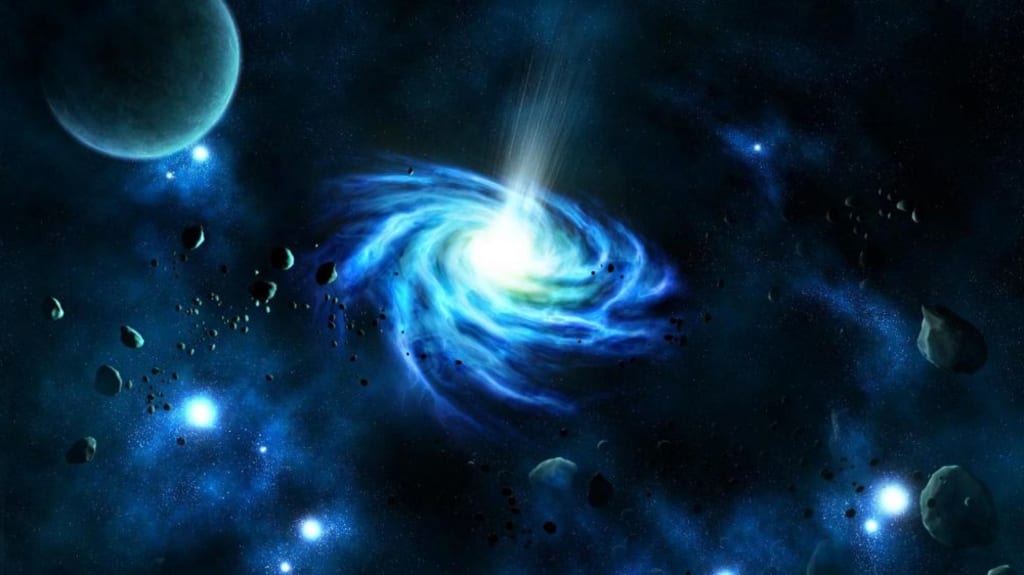The White Hole—The Black Hole's Opposite
A hypothetical puzzle piece to our ever expanding and brightening universe that could be quite cool...

Humanity has always desired to learn more about its surroundings and tried to satisfy its curiosity. Particularly in the modern and ever-evolving age of ingenuity, human beings are constantly striving to unlock the secrets of the cosmos. But for the most part, our probing the unknown only unlocks more questions. We discover something, yet we know next to nothing about its origin or function. It's like a teaser trailer to a movie, except we never know the date when it will be released to theaters when all our questions will be answered.
The multiverse, dark energy, dark matter, antimatter, and black holes are a few of the mysterious elements which spark man's interest and imagination. Another bizarre extraterrestrial attribute is the white hole. White holes are actually a theoretical concept which has sort of been floating around the scientific community for a while now. The definition of a white hole is a one-way opening which cannot be entered, but from which light and matter can escape.
A white hole would be the opposite and the reverse of a black hole. Now, in the event that something comes in contact with a black hole, once having crossed the event horizon (the gravitational boundary) it is impossible for light or matter to escape it, and it is only possible to enter the black hole, not to exit. A substantial amount of evidence backs up the existence of black holes, whereas with white holes there is not too much to back their existence.
The scientific discussion concerning white holes is primarily a debate, a discourse between two major stances: the belief that white holes can actually occur versus the belief that it is utterly impossible for them to exist. With the lack of information on white holes in addition to the questionability of their very existence, many people, students and scientists alike, have proposed hypothetical scenarios regarding white holes. One idea is that white holes are generated when the lifespan of a black hole is terminated.
Some physicists have proposed the hypothetical white hole as the cause of the theoretical Big Bang which brought our universe into existence. The nature of a white hole would make it exude or release a great deal of energy and matter. This would rather nicely explain how such a huge amount of energy and matter suddenly took shape. White holes—they are a fascinating conception. Some day we might even be able to prove that they are real.
About the Creator
John Tuttle
I'm a young man from Cherry Valley, Illinois who is passionate about the media, a field in which I hope to get a good job someday. I am a blogger, and I love writing, photography, and video-making.






Comments
There are no comments for this story
Be the first to respond and start the conversation.